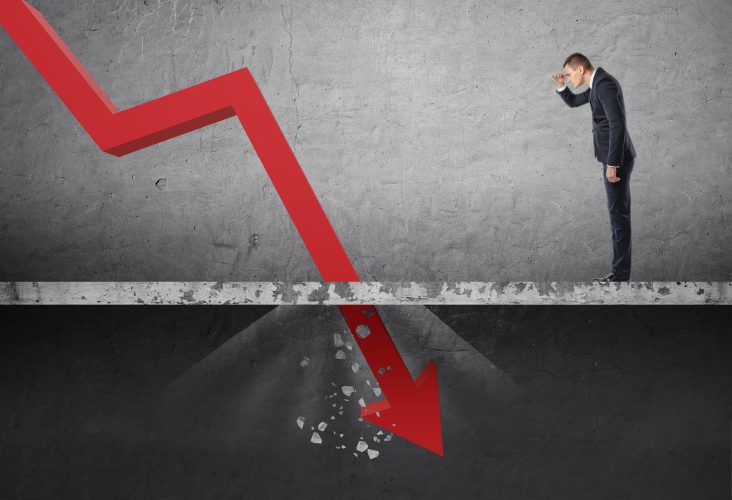‘Recession’ seems to be the buzzword of the last couple of years, but what exactly is a recession and how can you protect yourself in case a recession occurs?
What is a recession?
The National Bureau of Economic Research (NBER) Business Cycle Dating Committee—the official recession scorekeeper—defines a recession as “a significant decline in economic activity that is spread across the economy and that lasts more than a few months.”
Though the definition doesn’t really make it seem like a recession could affect you, that’s far from the truth. Because there is a huge decline in economic activity, people will be spending less and less.
If people are spending less, businesses will suffer. If businesses suffer, then more employees are going to be laid off. If more employees are laid off, people will be spending even less. This creates a vicious cycle that will take time to get out of. That’s why, during a recession, you’ll typically see a big rise in unemployment.
What you can do
Recessions can be scary, because you never know how your personal financial situation could take a hit. Fortunately, there are many things you can do to prepare yourself for one.
1. Try to reduce your debts as much as possible
Right before a recession, interest rates will be at an all-time high. Since a recession is predicted for 2023, they will continue to rise until it hits. This will make it increasingly difficult to pay off debts with high interest rates. You should therefore try to reduce your debts as much as possible, otherwise they’ll only become more difficult to pay off.
The harder your debts are to pay off, the less you’ll be able to afford everyday necessities like groceries and rent. The more you reduce your debt, the less affected you’ll be by the rising interest rates. The last thing you want to do is deal with debts during total economic uncertainty.
2. Save as much money as you can
Because recessions are a time of economic uncertainty, you never know what could happen with your sources of income. Unfortunately, the rate of unemployment rises exponentially during a recession. If you’re one of the unlucky many that have had to deal with a decrease in income, you’ll want to have an emergency fund to fall back on.
That’s why, in the months leading to a recession, you should save as much money as you possible can. This will ensure that you’re able to pay all of your bills and necessary expenses while you’re looking for new employment.
3. Reduce your expenses
One of the main reasons you should reduce your expenses is because doing so will help you put your money towards things that you need rather than things that you want. This is an incredibly important step if you plan on setting money aside in case of emergency or if you plan on paying off a big chunk of your debts.
When reducing spending, you should seek to spend your money only on essential items, like your groceries, your rent, your car payments, etc. Not only will reduced spending help you save money and pay off your debts, but it will also instil good financial habits for the future.
4. Spruce up your resume
If your income ever takes a hit because of a recession, it’s best that you’re fully prepared. The less job security you have, the more ready you should be to jump right back into the job market! Getting a job can be a full-time job in itself, so if you have your resume updated and ready to go, it’ll make finding a job that much easier.
If it’s been a long time since you’ve had to spruce up your resume, it’s sure to need lots of TLC. Try to keep it as brief as possible (about 1-2 pages) while also mentioning your pertinent experience. Moreover, be sure to write a customized cover letter every time you apply for a new position.
5. Regularly review your budget
Reviewing your budget on a regular basis is crucial for a healthy financial future. It’s not enough to just create a budget. In order to ensure that you’re on the right track, you should review it at least once a month, especially if your financial situation has changed.
In order to create a budget, track all of your income as well as all of your expenses. After figuring out whether you can reduce your expenses and increase your income, set a certain amount of money aside for savings. Follow your budget every time you receive a paycheque. At the end of the month, check to see whether you’ve followed it well. If you haven’t, you might have to make some changes.
Budgeting isn’t easy. It might take you a few tries before finding what works for you. Luckily, budgeting tools can help you facilitate that task! If you’re finding it difficult to follow your budget because you’re dealing with a lot of debts and expenses, contact a licensed insolvency trustee.
A trustee’s main goal is to help you get rid of all your debts and ensure that you’re financially healthy. With a licensed insolvency trustee, you’re sure to come out of a recession the right foot!


